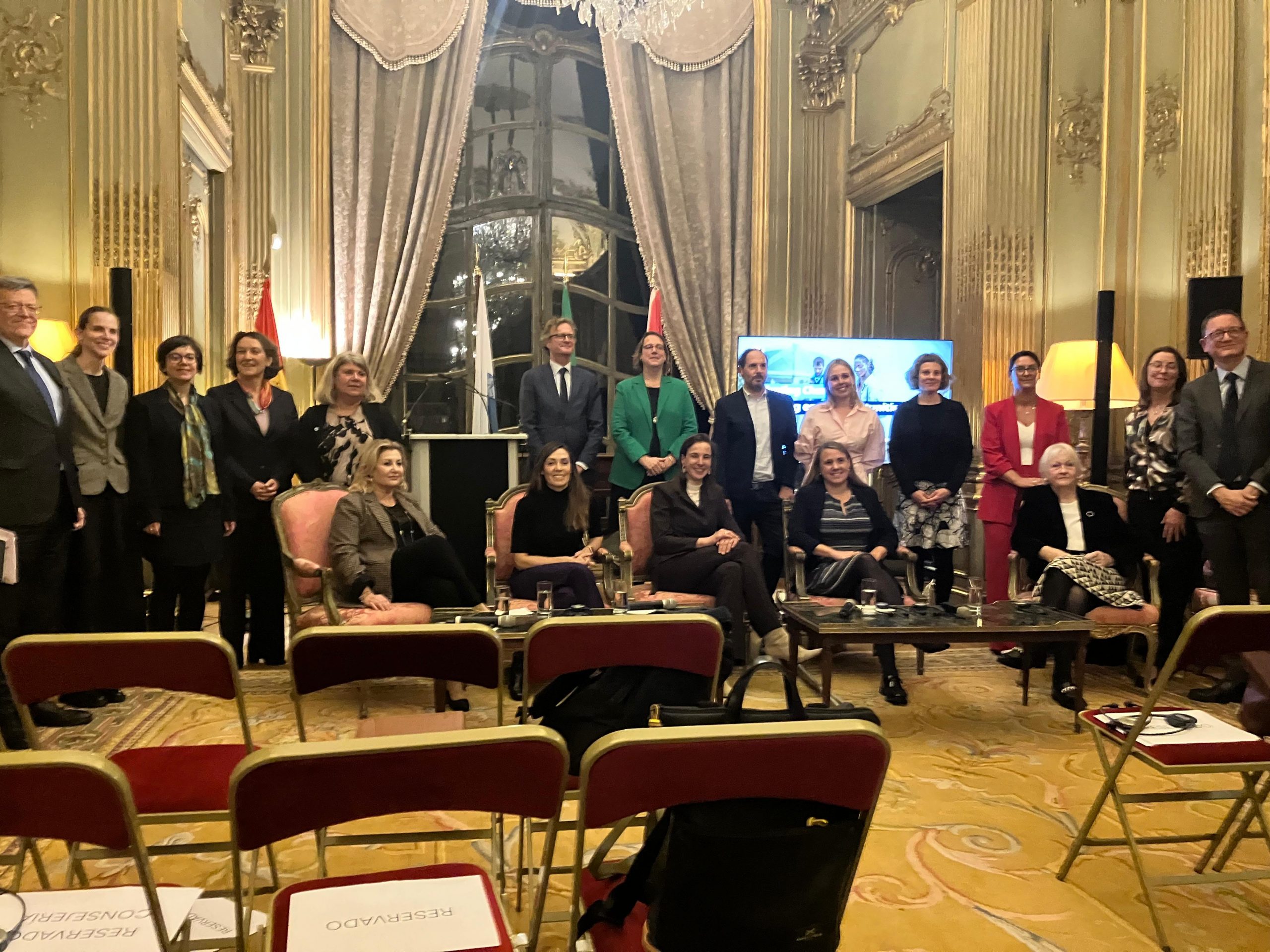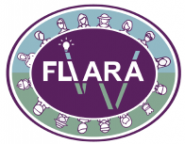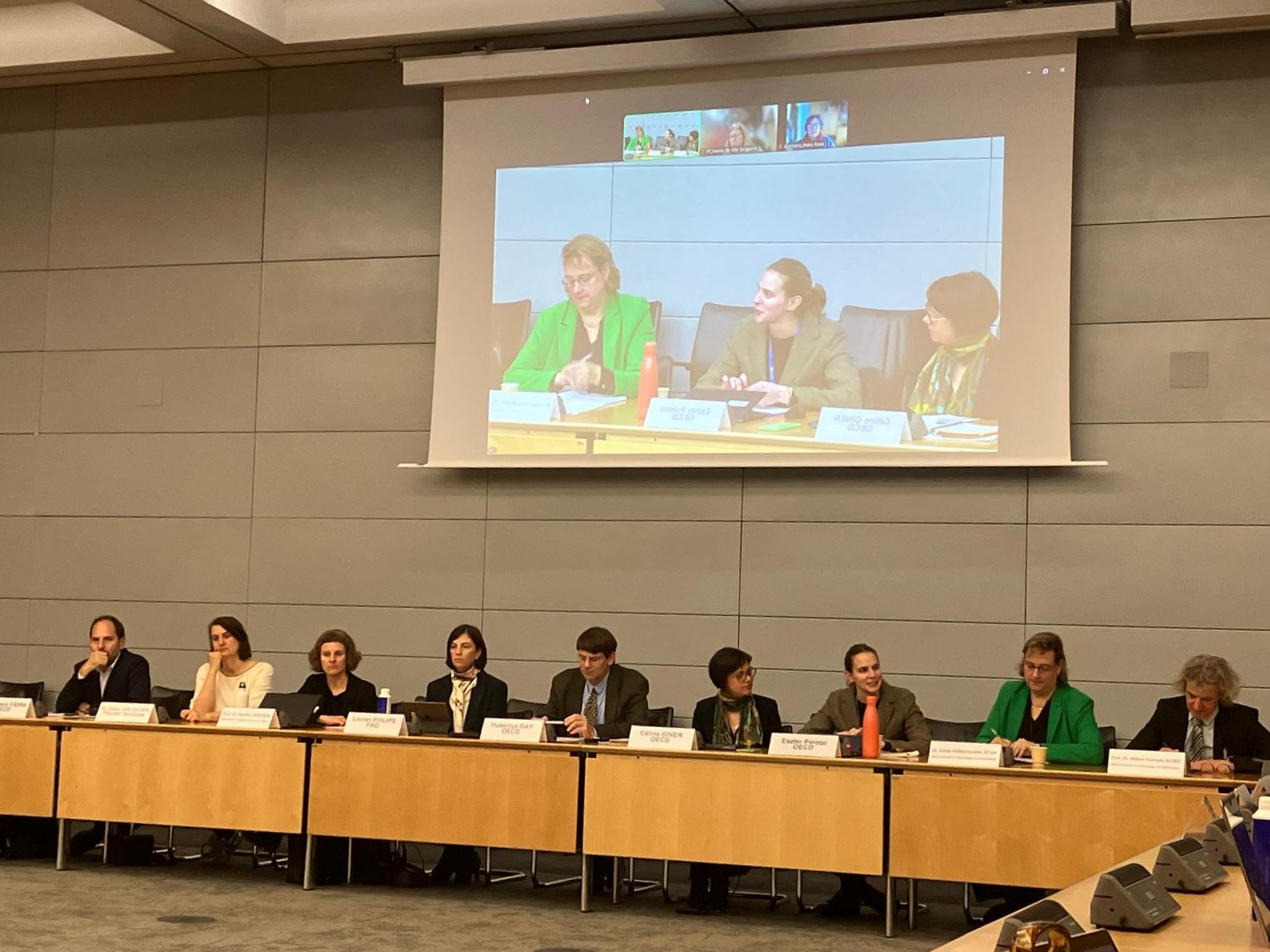Paris, France— The FLIARA Project played a central, impactful role at the recent “Cultivating Change: Promoting Equal Opportunities in Food Systems” event on October 27, co-hosted by the OECD, the Netherlands, Ireland, and Spain. By presenting evidence and participating directly in high-level policy discussions, the project underscored its unique methodology of combining robust data with targeted female entrepreneur empowerment.
Research Translates to Action: The Double-Edged Approach
The morning session, dedicated to technical expert-led exchange at the OECD Headquarters, saw Gerdy Verschuure-Stuip and Willem Korthals Altes from Delft University of Technology present key findings from the FLIARA research. She focused on the transformative impact of giving visibility and support to women in rural innovation.
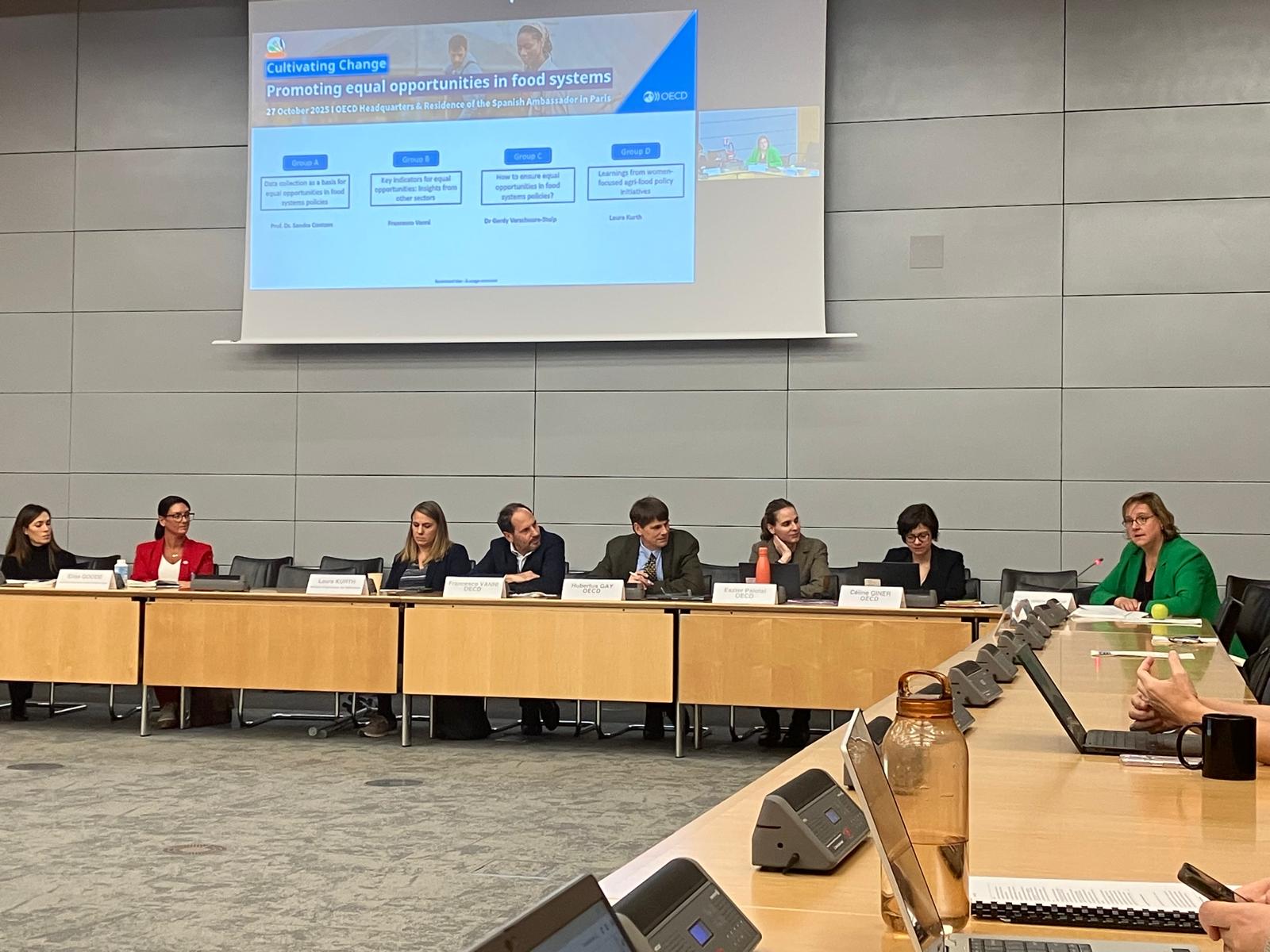
Verschuure-Stuip revealed that the project interviewed 200 female entrepreneurs and selected 20 of them to act as ambassadors. By consistently engaging these women through interviews and community of practice events over two years, the project observed profound personal growth. “When we saw these ladies at the beginning and two years later… we saw two completely different women,” she noted. “They were standing there, they were self-assured, and they were strong women.”
Her core message for policymakers was that while tracking quantitative metrics like “the numbers of 20% or 40 or 60%” is important, it is critically important to “invest in these women” and to “empower them to tell their story.” This dual approach—quantitative assessment coupled with qualitative, personal support—was presented as essential for translating policy intent into real-world change.
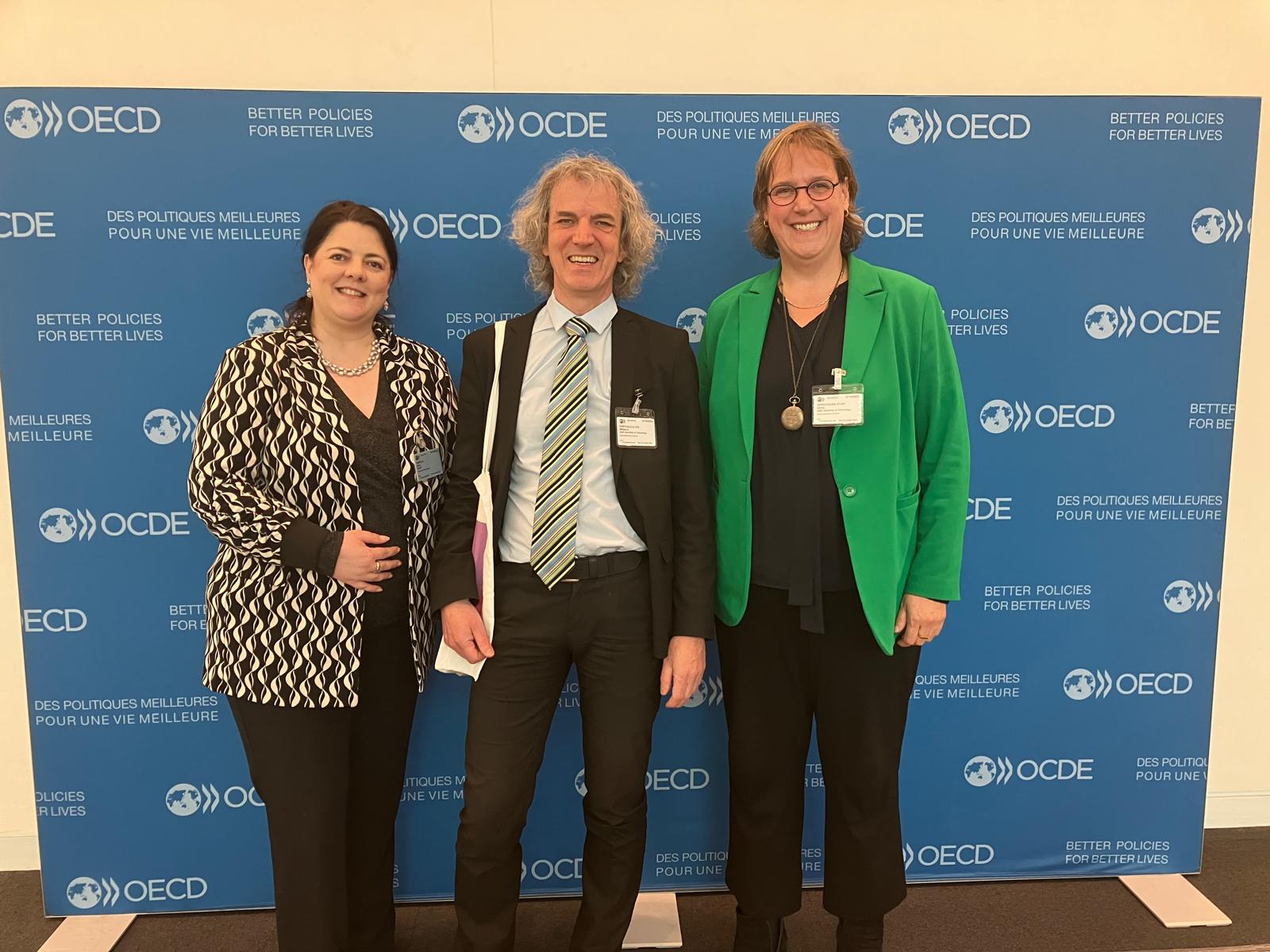
Spotlight and Policy: FLIARA at the High-Level Roundtable
The project’s significance was further amplified in the afternoon at the Residence of the Spanish Ambassador. Ms Verschuure-Stuip’s expertise was recognised through her participation in the prestigious Roundtable: Leading the way towards equal opportunities in food systems, alongside high-level government directors and officials.
In this high-level forum, she reiterated the lessons learnt from FLIARA’s approach, arguing that policy solutions must extend beyond mere data collection. “It was about female entrepreneurs sitting there explaining what they did and what their innovation journey was,” she explained. “By putting them in the spotlight, you saw them growing and becoming much more aware of the things they were doing.”
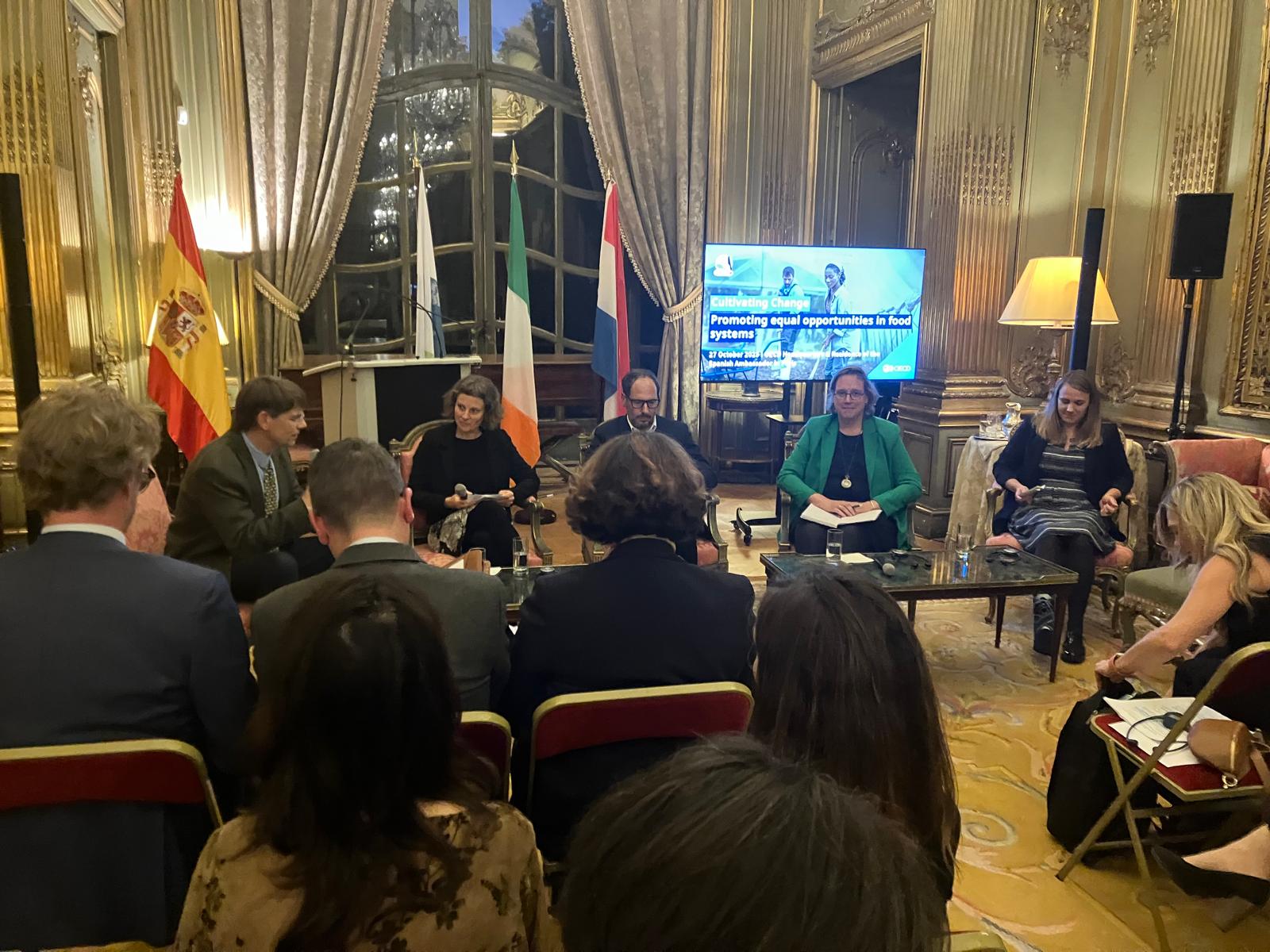
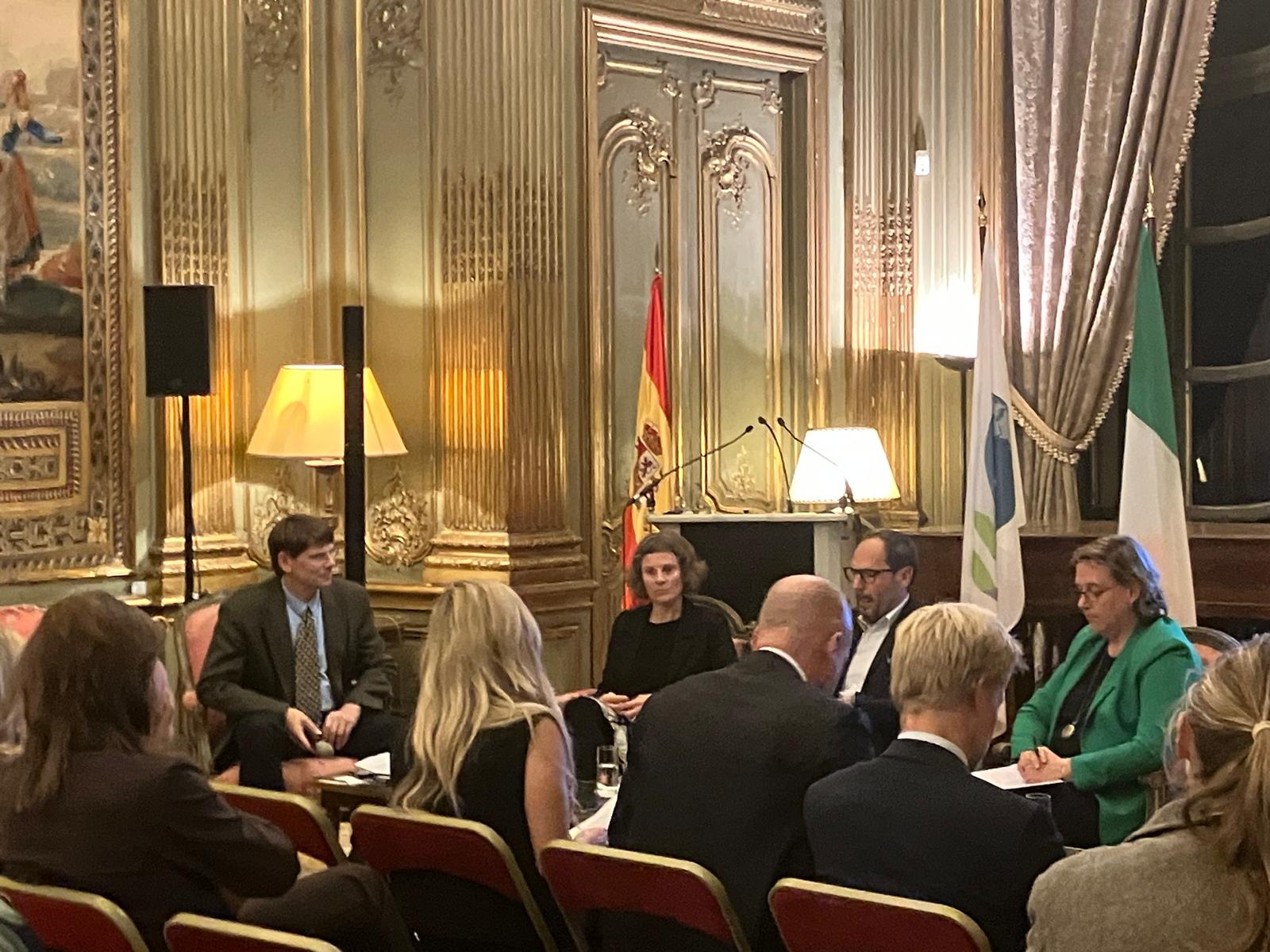
Verschuure-Stuip concluded the argument by stating the project’s second major takeaway: the necessity of combining empirical study with human investment. She stressed that “data and empowerment should go hand in hand,” advocating for policies that actively spotlight and empower women to become confident, visible leaders. This approach, as exemplified by the FLIARA Ambassadors, creates profound individual change that drives broader, more sustainable sectoral transformation.
Anne Kinsella, Senior Research Officer at Teagasc and a FLIARA partner, was also present at the event. She had the opportunity to connect with Irish representatives, including Ambassador David Brück (Permanent Representative of Ireland to the OECD), to share the FLIARA results and explore their relevance to national policy considerations.
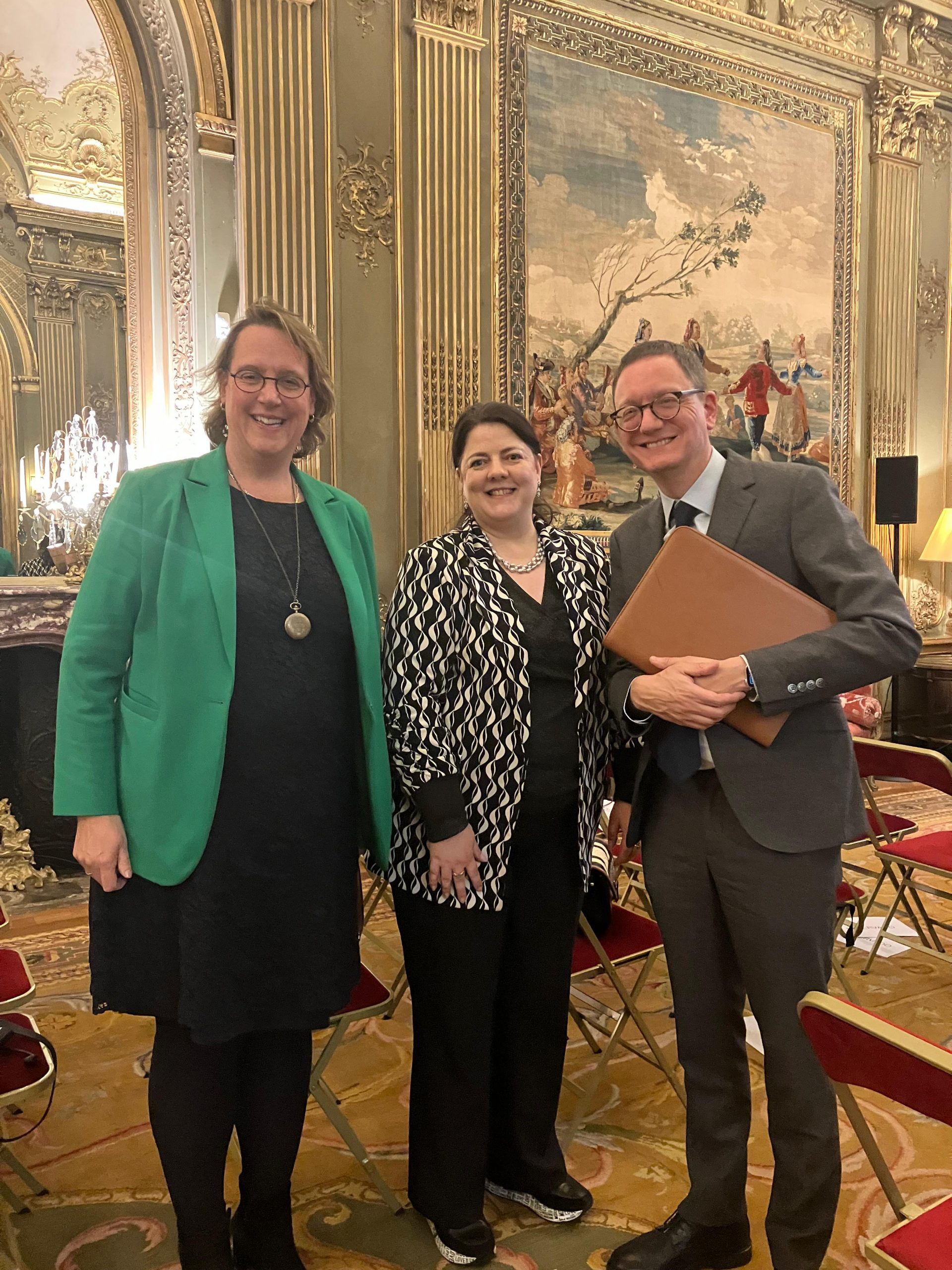
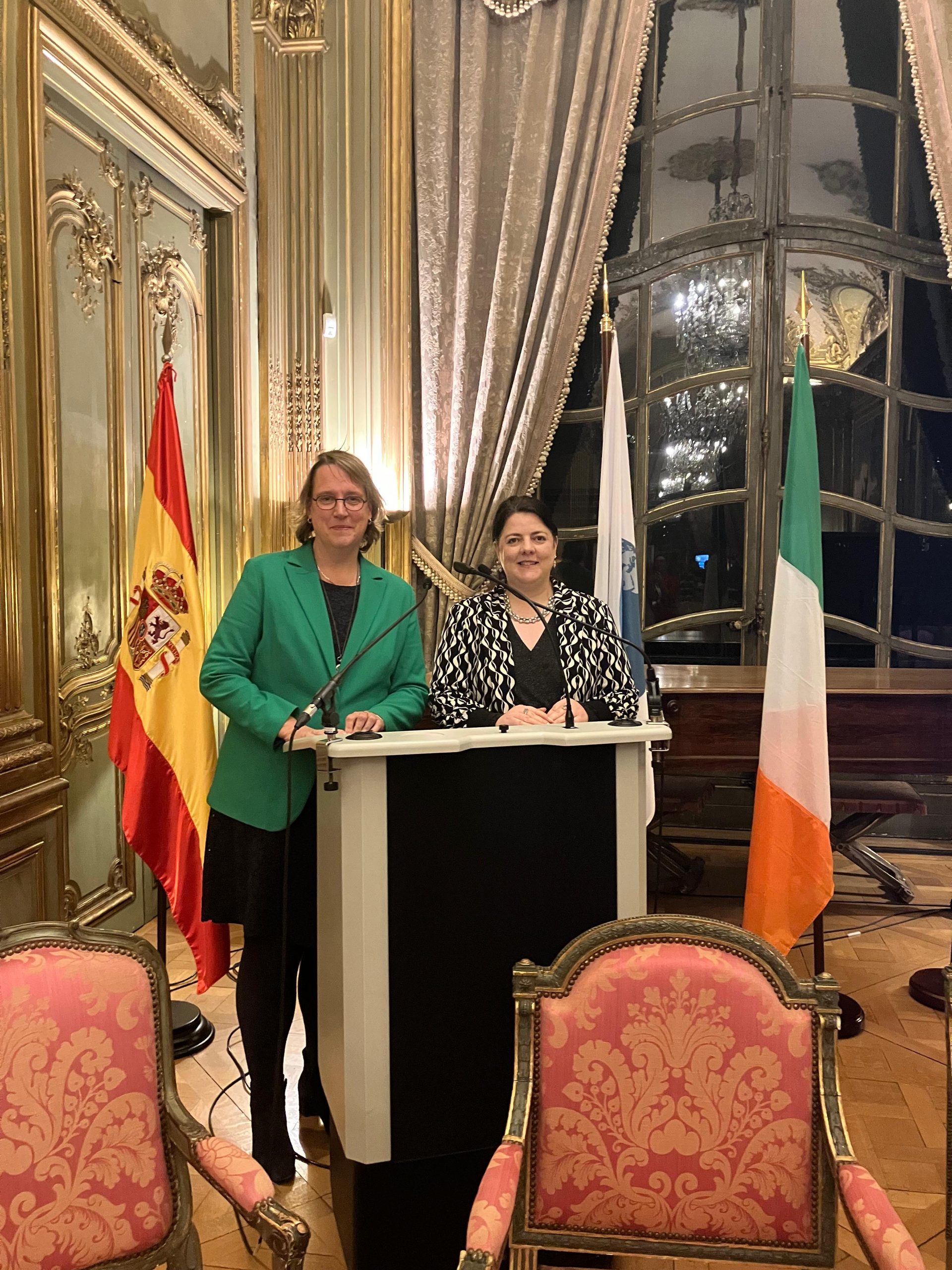
The prominent and active role of the FLIARA Project, through the contributions of Gerdy Verschuure-Stuip and the participation of Anne Kinsella, marks a major success in translating robust research into actionable, high-level policy. By advocating for an approach that merges empirical data with direct support and visibility for women, the project has underscored its essential mission to drive structural change, challenge gender norms, and create a more inclusive, resilient, and sustainable future for rural and agricultural communities across Europe. This powerful statement at the OECD event sets a clear direction for policymakers in anticipation of the 2026 International Year of the Woman Farmer.
